Dissident Saudi inmates go on hunger strike against solitary confinement, mistreatment
A number of dissident Saudi prisoners have begun an open-ended hunger strike in protest at their solitary confinement and mistreatment by prison authorities as a crackdown led by Crown Prince Mohammed bin Salman against rights campaigners and intellectuals widens in the conservative oil-rich kingdom.
The rights group Prisoners of Conscience, which is an independent non-governmental organization seeking to promote human rights in Saudi Arabia, announced in a post on its official Twitter page that prominent human rights lawyer Waleed Abu al-Khair and blogger Raif Badawi have been on hunger strike since December 11.
🔴 BREAKING 2
— Prisoners of Conscience (@m3takl_en) December 22, 2019
Both lawyer Walid Abo al-Khair and activist Raef Badawi have started hunger strike since 11 December 2019 in protest against keeping them in solitary confinement under excessive guards. pic.twitter.com/QPiPHtIcET
It added that imprisoned activist Khaled al-Omair joined the action on December 22, and stressed that he will not give up the hunger strike until his release.
🔴 BREAKING 1
— Prisoners of Conscience (@m3takl_en) December 22, 2019
Activist Khaled al-Omair starts a hunger strike from today 22 Dec. in protest of arbitrary detention and confirms that he will not stop till his release.
He also announces rejecting the "anti-terrorism" law, and calls upon an urgent meeting with a UN representative. pic.twitter.com/sZjdhTX3sN
He has roundly dismissed Saudi Arabia’s so-called anti-terrorism law, and demanded an urgent meeting with a UN representative.
Earlier this year, the Prisoners of Conscience announced that renowned imprisoned activists Abdullah al-Hamid, Abdulrahman al-Hamid – a member of the Saudi Civil and Political Rights Association (ACPRA) -- Abdulkareem al-Khodor, Fawzan al-Harbi and Mohammad Fahed al-Qahatani had gone on hunger strike.
The rights group noted at the time that the hunger strikers were calling for the release of all dissidents and pro-democracy activists, as well as all prisoners who had been arbitrarily imprisoned solely for exercising their right to freedom of expression.
Saudi Arabia has stepped up politically-motivated arrests, prosecution and conviction of peaceful dissident writers and human rights campaigners.
Over the past years, Riyadh has also redefined its anti-terrorism laws to target activism.
In January 2016, Saudi authorities executed Shia cleric Sheikh Nimr Baqir al-Nimr, who was an outspoken critic of the Riyadh regime. Nimr had been arrested in Qatif, Eastern Province, in 2012.
Dozens protest in front of Saudi embassy to demand release of Jordanian detainees
Meanwhile, dozens of people have staged a sit-in in Jordan to demand the release of their relatives and loved ones currently being held in prisons and detention across Saudi Arabia.
The protesters converged outside the premises of the Saudi embassy in the capital Amman on Sunday, and held up pictures of their relatives – some of whom have been detained in Saudi prisons for about a year without any formal charges.

They said in a statement that they will continue to stage sit-ins to pressure Saudi authorities into releasing their loved ones.
The families of the detainees have so far staged three sit-ins outside the Jordanian Ministry of Foreign Affairs, parliament, and the Prime Minister’s office.
Saudi officials have reportedly arrested the Jordanian nationals over their sympathy with the Palestinian cause. The detainees are languishing in maximum-security al-Ha'ir Prison, located approximately 40 kilometers (25 miles) south of the capital Riyadh, Dhahban Central Prison near the Red Sea port city of Jeddah and another unknown prison in solitary confinement.
Back on September 12, Mustafa al-Assaf, a spokesman for the Reform parliamentary bloc – which represents the opposition in the Jordanian parliament, told Arabic-language al-Khaleej Online news website that Saudi Arabian officials had conducted an arrest campaign against 60 Jordanians, despite the fact that they have lived in the country for many years without a criminal record or causing any security concerns.
Earlier, former Jordanian parliamentarian Hind al-Fayez and journalist Helmi al-Asmar had broken the news of Saudi authorities arresting 60 Jordanian citizens, including pilgrims, without charge or trial being leaked.
Fayez said the families of the detainees have been staging protests in front of the Saudi embassy in Amman to demand the immediate release of their loved ones.
“The Reform parliamentary bloc has followed up the issue of Jordanian detainees in Saudi prisons, and addressed the issue to the Ministry of Foreign Affairs and Expatriates several times, and the response was that it communicates with Saudi authorities,” Assaf said.
He added that arrested Jordanian citizens were collecting donations for people in the Gaza Strip with the knowledge and approval of Saudi officials, and were not doing anything other than that.
Over the past two years, Saudi authorities have deported more than 100 Palestinians from the kingdom, mostly on charges of supporting the Hamas resistance movement financially, politically or through social networking sites.
The Riyadh regime has also imposed strict control over Palestinian funds in Saudi Arabia since the end of 2017.
All remittances of Palestinian expatriates are being tightly controlled for fear that these funds could be diverted indirectly and through other countries to Hamas.
Money transfer offices are asking the Palestinians to bring forward strong arguments for conversion, and do not allow the ceiling of one’s money transfer to exceed $3,000.
VIDEO | Press TV's news headlines
VIDEO | 'War on Iran is only just beginning' ft. Laith Marouf
VIDEO | Gaza’s economy collapses due to Israeli war
VIDEO | Israel rejects US-approved Gaza technocratic committee
‘Narcissistic psychopath’: Netizens mock Trump over letter to Norway PM on Nobel Prize
Israeli forces demolish UNRWA buildings in occupied East al-Quds
Trump lashes out at allies over Greenland, shares private texts online
Iran’s Armed Forces will cut off any 'hand of aggression' against Leader: Spokesman







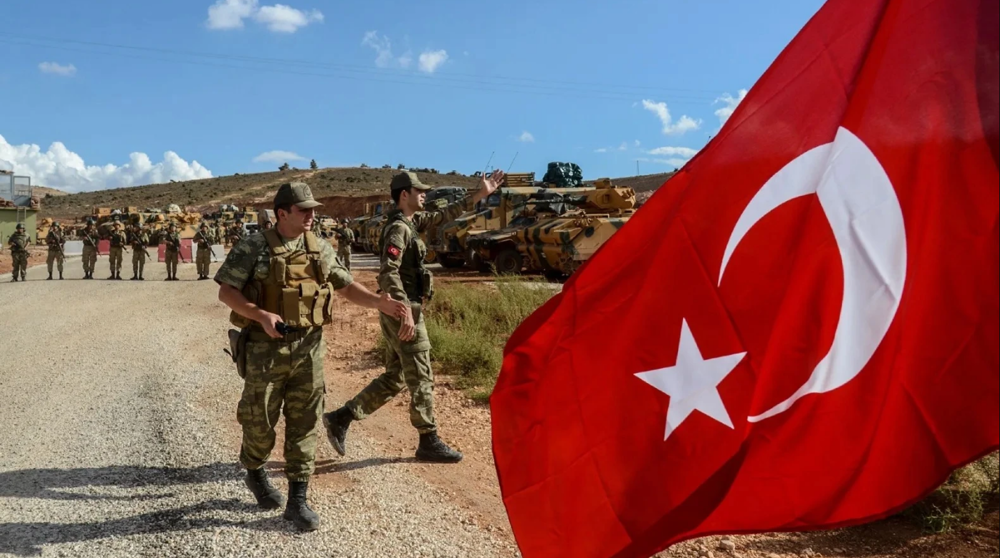
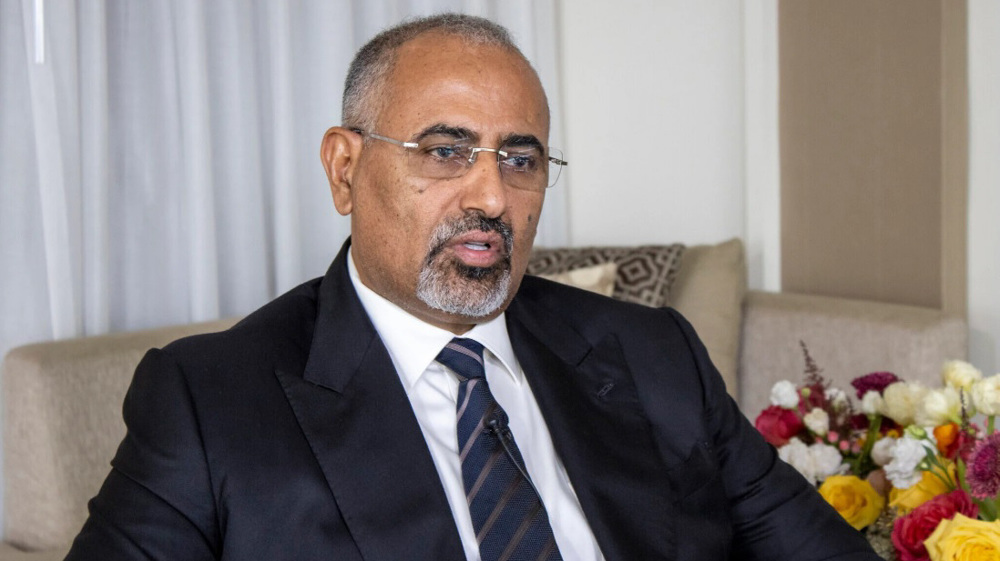
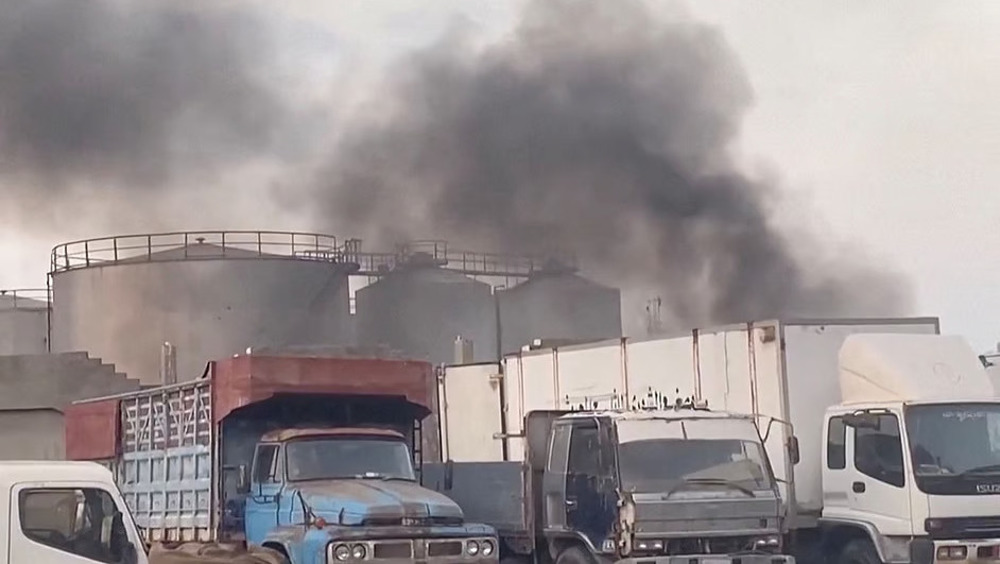




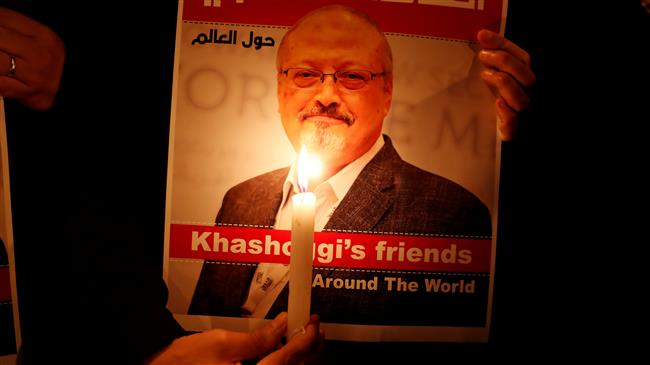


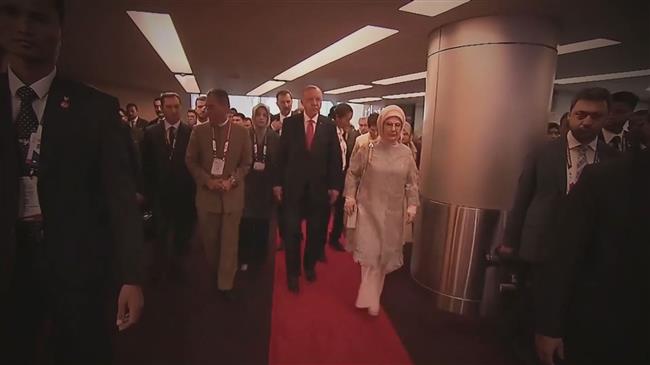



 This makes it easy to access the Press TV website
This makes it easy to access the Press TV website